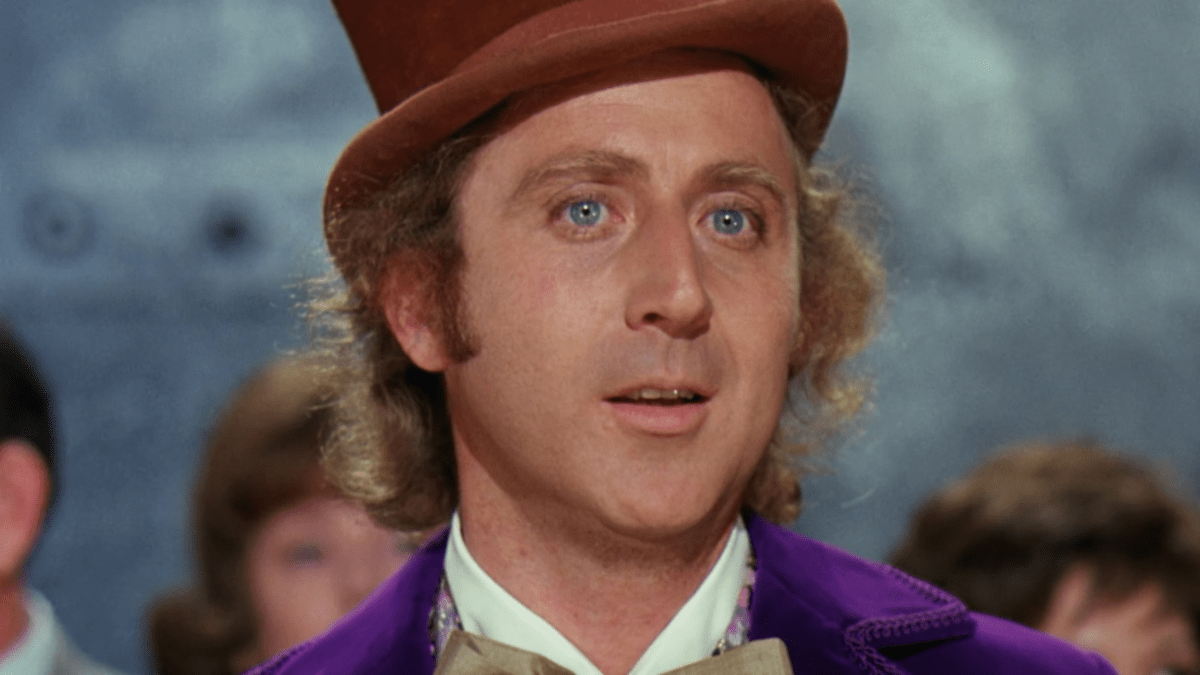Gene Wilder was a legendary actor, comedian, and writer known for marrying caustic outbursts with a warm twinkle in his eye.
He got his initial industry cred working with director Mel Brooks on films like 1967’s The Producers, as well as 1974’s Young Frankenstein and Blazing Saddles. He also paired with comedian and performer Richard Pryor for a slew of notable comedies, including Silver Streak (1976), Stir Crazy (1980), See No Evil, Hear No Evil (1989), and Another You (1991).
However, Wilder is probably most famous for his irreplaceable performance as eccentric chocolatier Willy Wonka in the 1971 classic Willy Wonka and the Chocolate Factory.
Yet, Wilder backed away from the spotlight in the ’90s and early 2000s. He performed a few roles on television, but he mostly concerned himself with writing. Between 2005 and 2013, he published a memoir, a collection of stories, and three novels.
He was also famously annoyed by Tim Burton’s 2005 Charlie and the Chocolate Factory adaptation, calling it “an insult” to his work. So he probably wouldn’t be championing Wonka, the new origin story about the chocolatier starring Timothée Chalamet that’s due out this Christmas.
In 2016, Wilder died at age 83 due to complications from Alzheimer’s disease, per NPR. After his passing, the media discovered that he had been diagnosed three years prior. His nephew, Jordan Walker-Pearlman, released a statement saying:
“The decision to wait until this time to disclose his condition wasn’t vanity, but more so that the countless young children that would smile or call out to him ‘there’s Willy Wonka’ would not have to be then exposed to an adult referencing illness or trouble and causing delight to travel to worry, disappointment, or confusion. He simply couldn’t bear the idea of one less smile in the world.”
What was Wilder’s final film?
Wilder’s final movie was also his friend and co-star Richard Pryor’s final starring role: 1991’s Another You. In the film, Wilder plays a pathological liar who is released from a mental hospital and is purposefully mistaken for a millionaire by a troupe of seedy actors. The movie was a critical and box office failure, and it ended up being Wilder’s last appearance in a theatrical film. Pryor, meanwhile, appeared in a few other movies in cameo roles while fighting multiple sclerosis. Pryor died in 2005.
Roger Ebert interviewed Wilder back in the ’70s, and in the published piece, the late film critic nailed exactly what makes Wilder such a compelling performer. Ebert’s revelation came when the actor talked about “pretending”:
“[H]e didn’t mean ‘pretending’ in the first dictionary sense. He meant projecting the feeling that you were pretending. Letting the audience suspect that there was something else, something wonderful and mysterious, beneath the surface that the character was pretending to exhibit. Willy Wonka, for example, seemed to be a heartless candy manufacturer who gleefully allowed small children to disappear into large rivers of chocolate. But there was something more, a mystery, a pretending. …
All of Gene Wilder’s roles have something of that quality. There is a sparkle in his eye, a certain way he has of smiling, a style of speech that suggests more than is being said. There’s a secret … he’s in on it … [and] we’d like to be.”

